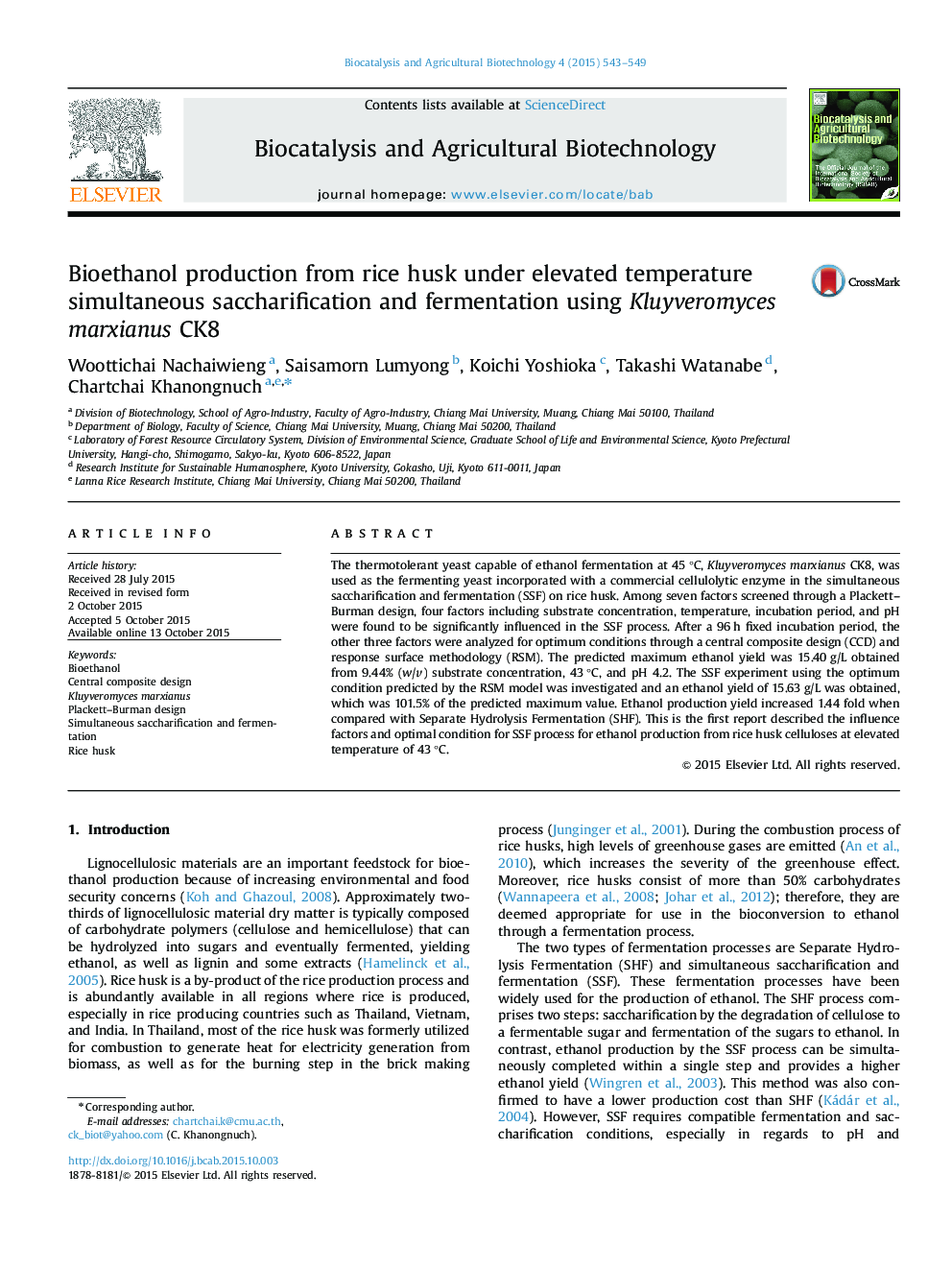| Article ID | Journal | Published Year | Pages | File Type |
|---|---|---|---|---|
| 2075305 | Biocatalysis and Agricultural Biotechnology | 2015 | 7 Pages |
•First report described the optimized SSF using rice husk for ethanol production.•Thermotolerant yeast K. marxianus CK8 and commercial enzyme were compatible.•SSF decreased the enzyme used from 40 to only 20 FPU/g substrate.•The actual ethanol yield was closed to predicted yield by 101.5% validation.•Our optimized SSF increased the ethanol yield to 1.44 fold compared to SHF.
The thermotolerant yeast capable of ethanol fermentation at 45 °C, Kluyveromyces marxianus CK8, was used as the fermenting yeast incorporated with a commercial cellulolytic enzyme in the simultaneous saccharification and fermentation (SSF) on rice husk. Among seven factors screened through a Plackett–Burman design, four factors including substrate concentration, temperature, incubation period, and pH were found to be significantly influenced in the SSF process. After a 96 h fixed incubation period, the other three factors were analyzed for optimum conditions through a central composite design (CCD) and response surface methodology (RSM). The predicted maximum ethanol yield was 15.40 g/L obtained from 9.44% (w/v) substrate concentration, 43 °C, and pH 4.2. The SSF experiment using the optimum condition predicted by the RSM model was investigated and an ethanol yield of 15.63 g/L was obtained, which was 101.5% of the predicted maximum value. Ethanol production yield increased 1.44 fold when compared with Separate Hydrolysis Fermentation (SHF). This is the first report described the influence factors and optimal condition for SSF process for ethanol production from rice husk celluloses at elevated temperature of 43 °C.
